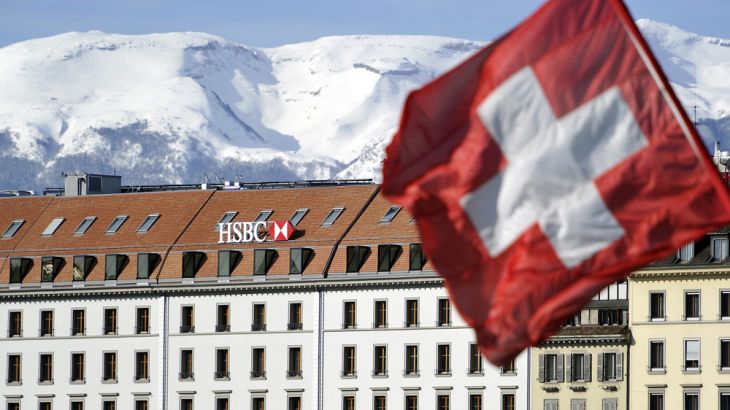
The Swiss Leaks
The journalist collaboration behind the biggest leak in banking history; plus, a look at the slow journalism movement.
Journalists are not known for their generosity of spirit – for theirs is the urge to get the exclusive, to come up with that scoop. But this week was different.
On February 8, a news story broke online on multiple news outlets across the globe. It was a deal struck between journalists from 45 countries who agreed to publish their stories simultaneously – a story which has come to be known as the Swiss Leaks.
Keep reading
list of 4 itemsNPR editor resigns after accusing US outlet of liberal bias
Lawmakers brawl as Georgian Parliament considers ‘foreign agent’ bill
Journalist loses foot after being badly wounded in Israeli attack in Gaza
The process started six years ago when an employee-turned-whistleblower at the British bank HSBC handed over a trove of financial data to the authorities in France. That data reportedly showed that HSBC – the world’s second biggest bank – helped thousands of its clients hide money in secret accounts held by its private bank in Switzerland. That data ended up with French newspaper Le Monde who then took it to the ICIJ – the International Consortium of Investigative Journalists.
Behind this story of tax evasion on a global scale is a story of a collaboration between a number of journalists taking on the secret world of banking.
Talking us through the story this week are three of the journalists involved in the investigation: Gerard Ryle, the director of ICIJ; P Vaidyanathan Iyer, the national affairs editor of The Indian Express; Gillles Van Kote, the director of Le Monde; and author Dean Starkman.
Media stories on our radar this week: After more than 400 days, Mohammed Fahmy and Baher Mohammed – the two Al Jazeera journalists imprisoned in an Egyptian jail are released on bail, with a re-trial set for the end of February; one of America star anchors – NBC’s Brian Williams is suspended for six months after he was called out for making up a story about his time covering Iraq; and the international cyber activist group Anonymous takes aim at its latest target – ISIL.
Slow journalism
Our feature this week slows the pace down. In the news business, journalists are under pressure to get the story quickly – if not first – so speed is one of the key ingredients in the industry. From print to TV and now in the age of 24-hour breaking news, twitter and live-blogging, competition between news reporters has never been higher.
But in reaction to this, a new movement has been born called slow journalism. The idea is to give reporters the time they need time to investigate news events and seek out untold stories and angles. The movement values meaning over mere information, and a growing number of organisations have embraced the concept with long-form articles and podcasts.
In this week’s feature The Listening Post’s Paolo Ganino takes a look at the slow journalism movement.
Paul Salopek knows a thing or two about slow journalism. The Pulitzer-prize-winning journalist has started on a project that is set to take him seven years to complete. He is embarking on a walk around the world, chronicling the landscape and the people he meets. In collaboration with the National Geographic he has already gone from Ethiopia to Saudi Arabia en route to Turkey. You can follow his ‘Out of Eden’ walk trail in real time online at the outofedenwalk.nationalgeographic.com, and in the meantime you can check out his journey so far in our closing video.